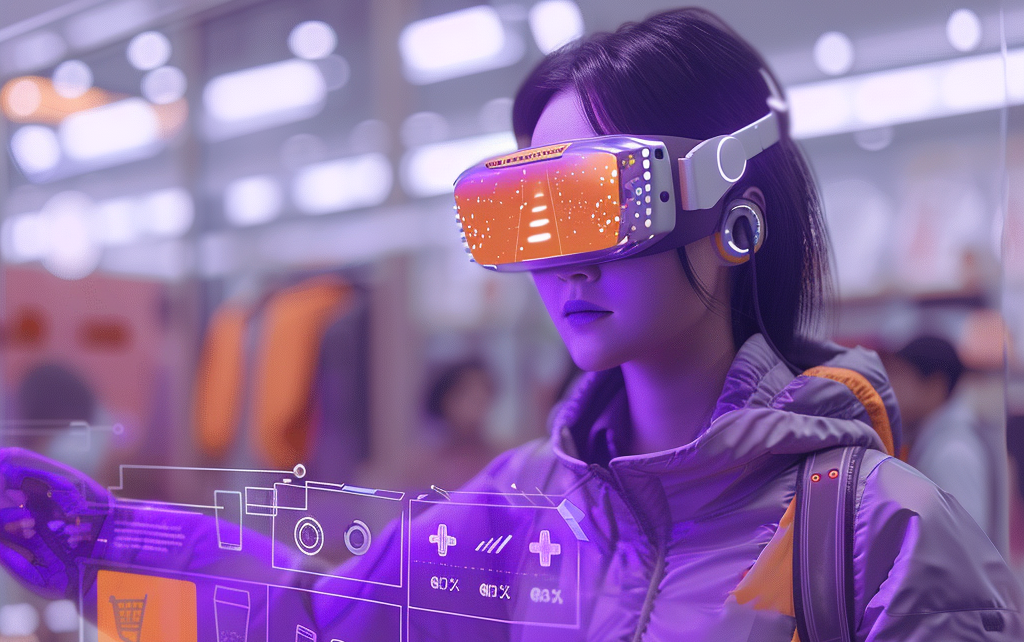As the ecommerce landscape evolves, businesses must stay at the forefront of technological advancements to provide exceptional shopping experiences. One such innovation is the fusion of Artificial Intelligence (AI) and User Experience (UX) to create a 100% conversational shopping experience. This paradigm shift not only enhances customer satisfaction but also drives retailer profitability. In this blog post, we delve into how combining AI and UX reimagines the shopping journey, resulting in a personalized and seamless experience for consumers.
The Concept of Conversational AI in Ecommerce
Conversational AI in ecommerce refers to the use of AI technologies, such as Natural Language Processing (NLP) and Machine Learning (ML), to facilitate human-like interactions between customers and digital interfaces. This approach transforms traditional online shopping into a dynamic, interactive experience where customers can engage with AI-powered assistants through voice, text, or even images.
Key Benefits of Combining AI and UX for a Conversational Shopping Experience
- Personalized AI Shopping Assistant
Each customer is assigned a dedicated AI shopping assistant that learns their preferences, style, and needs through natural conversations. This assistant provides personalized recommendations, answers questions, and guides the customer through the shopping journey, making the experience highly tailored and engaging.
- Multimodal Interaction
Customers can interact with their AI shopping assistant through various modes—voice, text, or images. They can describe what they’re looking for, share photos for visual search, or ask for suggestions based on their current wardrobe. This flexibility ensures that customers can communicate in the way that feels most natural to them.
- Contextual Recommendations
The AI assistant considers the customer’s context, such as upcoming events, weather, and personal style, to provide highly relevant product recommendations. It can also suggest complementary items to create complete outfits or sets, enhancing the shopping experience and increasing the likelihood of purchase.
- Seamless Checkout
The conversational interface allows customers to add items to their cart, apply discounts, and complete the checkout process without navigating through multiple pages. The AI assistant handles the entire process, making it quick and effortless, thus reducing cart abandonment rates.
- Post-purchase Support
The AI assistant continues to engage with customers even after the purchase, providing order updates, tracking information, and handling any customer service inquiries. It can also gather feedback and suggest future purchases based on the customer’s satisfaction, fostering long-term loyalty.
Benefits for the Consumer
- Personalized Shopping Experience: Customers receive tailored recommendations and assistance based on their unique preferences, saving time and effort in finding the perfect products.
- Convenience and Accessibility: The conversational interface allows customers to shop anytime, anywhere, using their preferred mode of communication. They can multitask and shop while doing other activities.
- Improved Decision Making: The AI assistant helps customers make informed decisions by providing relevant information, comparing products, and offering expert advice. It can also help customers discover new products they might like.
- Time-saving and Efficient: The seamless checkout process and post-purchase support streamline the shopping experience, saving customers time and reducing friction points.
Impact on Retailer Profitability
- Increased Conversion Rates: Personalized recommendations and a seamless checkout process can lead to higher conversion rates, as customers are more likely to find products they love and complete their purchases.
- Higher Average Order Value: The AI assistant’s ability to suggest complementary products and create complete sets can encourage customers to add more items to their cart, increasing the average order value.
- Improved Customer Loyalty: The personalized and convenient shopping experience can foster strong customer loyalty, leading to repeat purchases and positive word-of-mouth referrals.
- Cost Savings: The AI-powered conversational interface can handle a significant portion of customer inquiries and support, reducing the need for human customer service representatives and saving operational costs.
- Valuable Customer Insights: The conversational interactions provide rich data on customer preferences, behavior, and feedback, which can be analyzed to optimize product offerings, pricing strategies, and marketing campaigns.
Real-World Examples of AI-UX Integration in Shopping
- Burberry’s AI-Powered Chatbot: Burberry launched a chatbot on Facebook Messenger that engages customers in conversation to provide personalized recommendations, style advice, and instant access to runway collections, integrating AI with a conversational UX.
- North Face’s Voice-Activated Shopping: The North Face introduced a voice-activated shopping experience with Google Assistant, allowing customers to have a natural conversation to find the right products based on their activities, location, and weather, demonstrating AI-UX in a contextual and conversational shopping experience.
- Sephora’s Virtual Artist: Sephora’s Virtual Artist uses AR (augmented reality) and AI to provide customers with the ability to try on makeup virtually through their mobile app. The UX is designed to be conversational and interactive, allowing for a highly personalized and immersive shopping experience.
- ASOS’ Visual Search: ASOS incorporated a visual search feature into their app that allows users to upload a photo of a clothing item they like, and the app uses AI to find visually similar products available for purchase, merging AI and UX in a conversational manner through images.
- Starbucks’ Mobile Order & Pay with Voice Command: Starbucks’ mobile app features a voice-ordering function powered by AI, allowing customers to place an order using voice commands. The app’s UX is designed to facilitate a seamless, conversational experience, enhancing convenience and accessibility.
Conclusion: The Future is Conversational
By combining AI and UX expertise, this conversational shopping experience offers a personalized, convenient, and engaging way for customers to shop. It has the potential to drive higher conversion rates, increase average order values, and improve customer loyalty, ultimately boosting retailer profitability. The AI-powered assistant becomes a virtual personal shopper, enhancing the customer experience and creating a competitive advantage for the retailer in the ecommerce landscape.
Embracing this innovative approach will not only set your business apart but also prepare it for the future of digital commerce. By prioritizing customer experience and leveraging cutting-edge technology, you can ensure your business remains at the forefront of the industry.
—
Ready to get started? Sign up for a demo to find out how NewEcom.Ai can help elevate your conversational shopping experience.



